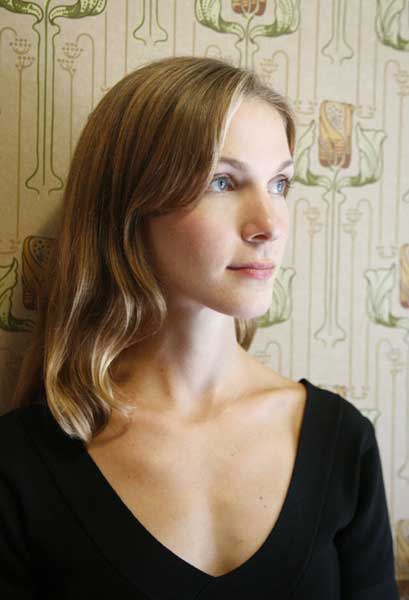Your support helps us to tell the story
From reproductive rights to climate change to Big Tech, The Independent is on the ground when the story is developing. Whether it's investigating the financials of Elon Musk's pro-Trump PAC or producing our latest documentary, 'The A Word', which shines a light on the American women fighting for reproductive rights, we know how important it is to parse out the facts from the messaging.
At such a critical moment in US history, we need reporters on the ground. Your donation allows us to keep sending journalists to speak to both sides of the story.
The Independent is trusted by Americans across the entire political spectrum. And unlike many other quality news outlets, we choose not to lock Americans out of our reporting and analysis with paywalls. We believe quality journalism should be available to everyone, paid for by those who can afford it.
Your support makes all the difference.The Victorian 'sensation novel' has become a fashionable study course in recent years, as it and Dracula have displaced the worthier volumes of George Eliot and Henry James. Disarmingly, Chloe Schama confesses to abandoning her research on finding absurd plots, thin characterisation, and more-than-put-downable prose. But one true sensation story seemed worth pursuing – that of the contested marriage(s) of Theresa Longworth and Charles Yelverton, whose court cases gripped the public in the 1860s. They met on a cross-channel ferry and flirted by letter until she followed him to the Crimea, and thence to Edinburgh where they conducted a private wedding, valid under Scots law. They met up again in Ireland, where Yelverton was a member of the Ascendancy, grandson of Viscount Avonmore, and had another unwitnessed wedding from a local priest, Theresa being Catholic. They returned to Scotland, toured Perthshire and then travelled to Bordeaux where Theresa seems to have borne a child. The day after she re-joined her beloved back in Edinburgh, he married another woman.
They met again in court in Dublin, Theresa asserting the legality of her wedding ceremonies and Yelverton denying it. Witnesses included friends, chambermaids and hapless Father Mooney, who claimed to have confirmed an existing union but had furnished a certificate. Yelverton admitted the passion that led to sex, but had never promised marriage. The public backed Theresa, who won her case and published a lightly disguised account of the whole romance. Yelverton, who brought a suit in the Scottish courts, was acquitted of bigamy, but lost again on appeal. Theresa sued for maintenance to the House of Lords, and lost. Both parties then retired, spending most of the rest of their lives abroad.
The sorry drama is not always easy to follow in Chloe Schama's lively re-telling, which relies on lengthy quotations from the couple's correspondence and legal depositions and does not judge their actions or motives. But it certainly sides with Theresa, as an exemplary figure of female self-fashioning caught up in a tangle of law, custom and adventure.
More interestingly, the Yelverton case sparked the classic sensation novel Lady Audley's Secret, which began serialisation soon after the Dublin judgement, and was also re-worked by Wilkie Collins in Man and Wife. Analysis of these fictional responses together with public reactions and other examples of bigamy would have given the present narrative more context. Dedicated to the author's illustrious father "who taught me how to tell a story", Wild Romance nonetheless brings into focus a historical moment of Victorian impropriety that would make a great sex-and-scandal melodrama.

Join our commenting forum
Join thought-provoking conversations, follow other Independent readers and see their replies
Comments